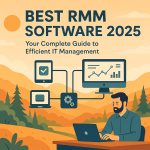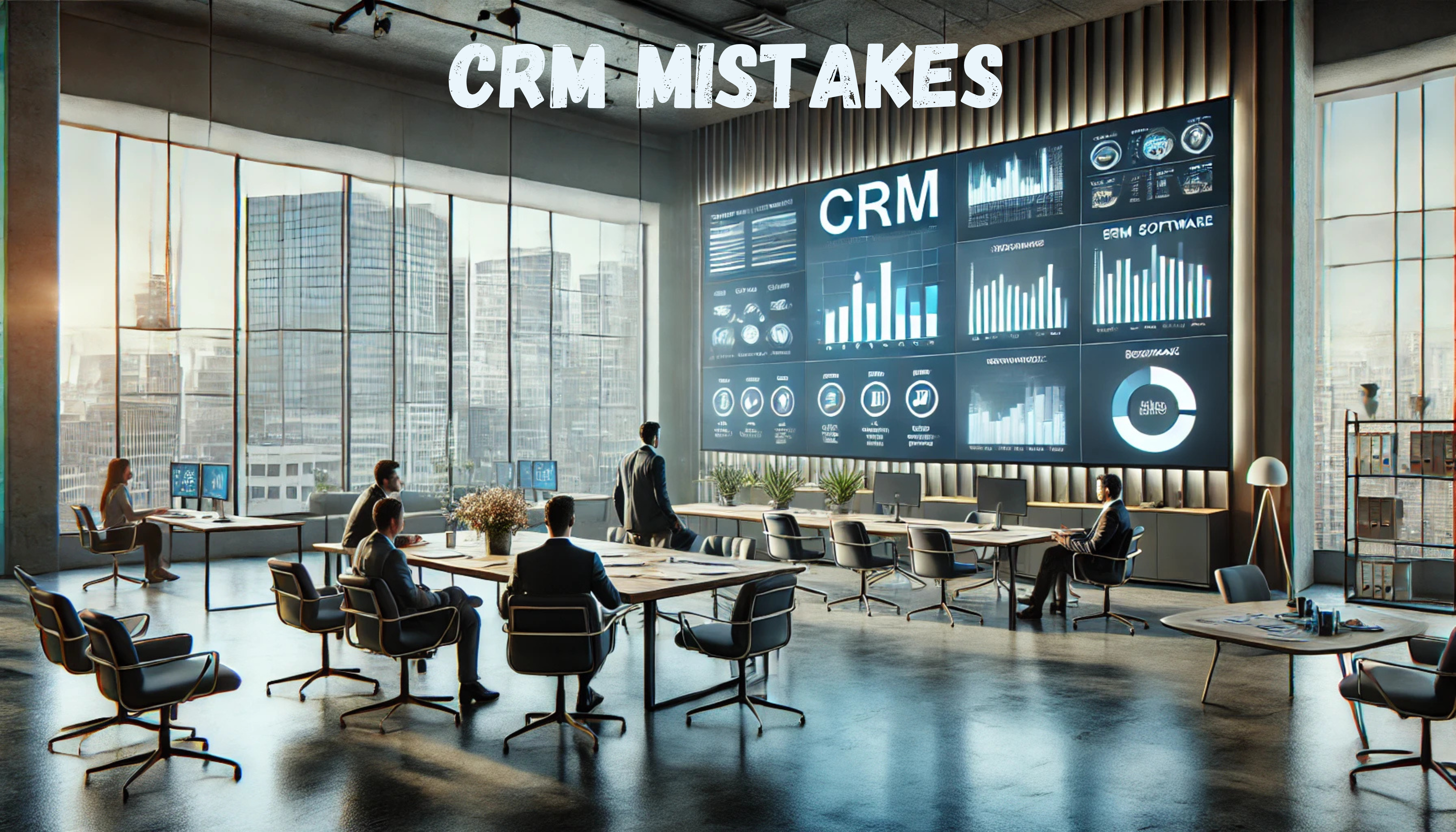Introduction
Have you ever thought about how much we rely on our mobile devices for customer relationships? Mobile CRM solutions are changing how we connect with clients. They let us access important customer data anytime, anywhere.
As businesses try to improve their strategies, mobile CRM is becoming essential. It helps us act fast and effectively in today’s fast-paced world.
Mobile CRM is more than just a tool. It’s about connecting, understanding, and responding to customers right away. With apps for smartphones and tablets, we can manage interactions and sales easily. This shift in customer relationship management is key for keeping strong ties and success.
Key Takeaways
- Businesses using mobile CRM can quickly access customer data, making them more responsive.
- Mobile CRM apps allow for real-time updates, making customer interactions more accurate.
- Integration with tools like calendars and email clients makes communication smoother.
- Data security and encryption are crucial for effective mobile CRM use.
- Mobile-first strategies meet today’s digital age customer expectations.
- Using geolocation tracking in mobile CRM boosts lead engagement and interaction.
The Rise of Mobile CRM
Mobile CRM has changed how we connect with customers and manage our relationships. Before, CRM tools were mainly for computers, limiting our access to important customer data. With the rise of mobile devices, we can now use mobile apps for CRM, making it easier and more efficient.
Transformation of Customer Relationship Management
The term “customer relationship management” was first used in 1995. Since then, the field has grown fast. Salesforce became a leader in 1999, starting a new era in CRM.
By the late 2000s, social media began to shape how we engage with customers. This showed how crucial it is for businesses to keep up with changes. By 2017, the CRM market was expected to be worth £36.4 billion, showing the need for change.
Impact of Mobile Devices on CRM Adoption
Mobile devices have played a big role in making CRM more accessible. By 2024, about 81.6% of Europeans had smartphones. This shows how widespread mobile technology is.
Mobile CRM apps let employees work with customer data anywhere. This leads to better communication and teamwork. It also makes clients happier and builds stronger relationships.
| Year | Key Milestone |
|---|---|
| 1995 | Salesforce becomes the first major SaaS vendor in CRM |
| 1999 | Salesforce becomes first major SaaS vendor in CRM |
| 2003 | Microsoft Dynamics CRM integrates with MS Office |
| 2004 | SugarCRM introduces open-source enterprise systems |
| 2017 | CRM industry projected value of £36.4 billion |
Mobile CRM does more than just give us data access. It improves how we interact with customers. Companies that use it can keep all customer information in one place, avoid duplicate data, and automate tasks.
With mobile CRM, businesses can create detailed customer profiles. These profiles help tailor offers to what each customer needs. This way, companies can build stronger relationships with their customers.
Importance of Mobile CRM Solutions
Mobile CRM solutions are key in today’s business world. They offer many benefits that help us succeed. One big advantage is giving us real-time access to customer data. This is vital for sales teams and customer service reps.
With this access, we can have personalized talks with customers. This builds stronger bonds with them.
Real-time Access to Customer Data
Having customer data right away helps us make quick decisions. Mobile CRM lets us get customer histories, likes, and past talks fast. This info helps us answer questions and tailor our talks better.
Enhanced Productivity for Sales Teams
Mobile CRM makes our work better. It makes our workflows smoother and lets us get to important info anywhere. Sales teams can then focus on what’s important—making connections and closing deals.
Mobile CRMs help with scheduling, data checking, and updating contacts. These actions make our sales work better and our team more effective.
Customer Engagement and Relationship Building
Keeping customers engaged is key to our success. Mobile CRM helps us do this by letting us talk to customers at the right time. We can help them anytime, day or night.
This means we can make our customers happier and keep them coming back. It’s a win-win for everyone.
| Benefits of Mobile CRM | Description |
|---|---|
| Real-time Access | Instant retrieval of customer data for informed decision-making. |
| Productivity | Streamlined workflows and improved sales processes on-the-go. |
| Customer Engagement | Enhanced communication and support, leading to stronger relationships. |
| Accessibility | Available across devices, enabling flexibility and remote operations. |
Core Features of Mobile CRM Apps
Mobile CRM apps have key features that make managing customer relationships easy while you’re on the go. They help improve the sales process and make teams work better together.
Access to Customer Profiles and History
Mobile CRM apps let you see detailed customer profiles and histories. This helps sales teams talk to customers in a way that feels personal. It’s great for building strong relationships.
Sales Pipeline Management
Mobile CRM apps also help manage the sales pipeline well. They let teams track leads and deals in real time. This makes it easier to focus and close sales.
Task and Calendar Integration
Mobile CRM apps are good at keeping teams organized. They let you manage tasks and calendars easily. This is key for working together, even if you’re not in the same place.
| Core Feature | Description | Benefits |
|---|---|---|
| Customer Profiles | Access to detailed backgrounds and histories of customers. | Enhances personalization and engagement. |
| Sales Pipeline | Tools to track leads and manage opportunities efficiently. | Improves focus and chances of closing sales. |
| Task Management | Integration of tasks and calendars for seamless organization. | Ensures timely follow-ups and organized workflow. |
Benefits of Using Mobile CRM for Customer Relationships
Mobile CRM solutions bring big benefits for companies wanting to better their customer relationships. They make work smoother and help with talking to customers, leading to better results.
Increased Sales Efficiency
Mobile CRM helps our sales team act fast on leads. Field reps get important info right away, making strong pitches and building connections. The easy-to-use apps make managing tasks like emails and contacts easier, boosting work speed.
Improved Customer Retention Rates
Mobile CRM makes giving personal support easy at every step for customers. Studies show 56% of people might go back to a company after bad service. With mobile CRM, we can improve how we talk to customers, keeping them coming back. Keeping records up to date means we can offer just what customers need, building loyalty.
| Aspect | Before Mobile CRM | After Mobile CRM |
|---|---|---|
| Response Time | Delayed responses to customer inquiries | Immediate access to customer information for quick responses |
| Sales Productivity | Manual data entry and tracking | Automated logging of sales activities |
| Customer Experience | Inconsistent messaging and support | Real-time updates ensure accurate customer data |
| Data Accuracy | Outdated contact records | Real-time updates ensuring accurate customer data |
Enhancing Team Collaboration with Mobile CRM
Good team collaboration is key for better customer relationships and sales success. Mobile CRM helps a lot by making communication easy, keeping everyone updated, and sharing important insights and feedback.
Real-time Updates and Notifications
Mobile CRM systems send real-time updates and notifications on customer actions and preferences. This keeps the team on the same page. Companies using mobile CRM see a 15% boost in productivity.
This means team members can quickly respond to customer needs and market changes. Automated data entry also cuts down on time spent on tasks that don’t make money.
Sharing Insights and Feedback
Mobile CRM makes it easy to share insights and feedback among team members. This creates a team effort where everyone helps shape the strategy. Sales teams can quickly access shared documents and talk through integrated channels.
This makes them more responsive to clients. Mobile CRMs also give sales managers tools to analyze performance. This helps in making better sales forecasts and decisions, leading to happier customers and better retention.
| Metric | Impact of Mobile CRM |
|---|---|
| Increase in Productivity | 15% |
| Boost in Customer Satisfaction | 26% |
| Rise in Customer Retention | 20% |
| Improvement in Sales Quota Attainment | 10% |
| Increase in Sales Closures | 20% |
Integrating Mobile CRM with Other Tools
Integration is key to making mobile CRM work better. It connects with many tools, making our work smoother and our customer service better. We focus on linking with email, calendar apps, and location services.
Seamless Integration with Email and Calendar Applications
Linking mobile CRM with email and calendar apps helps us manage client interactions better. It keeps all important talks in one place and makes it easy to find schedules and deadlines. This makes us more productive and quick to answer customer questions.
Having everything in one spot helps avoid losing information. It keeps our data organized and easy to find.
Utilizing Location-based Services
Location services give us insights into nearby customers. They help us plan visits and offers on the spot. This real-time info lets us tailor our approach to each customer, making our service more personal.
This connection strengthens our relationship with potential clients. It puts us ahead in a competitive market.
Best Practices for Implementing Mobile CRM
Implementing mobile CRM well means following key steps to improve user experience and keep data safe. It’s important to make the mobile interface fit our team’s needs. This means customizing it to match our work flow, so it’s easy to use and free from clutter.
Tailoring the Mobile Interface for User Experience
A simple interface helps our team use the CRM more. It lets them quickly find important customer info, boosting their work speed. Forrester Research says mobile CRM’s ease and mobility are key to making users happy.
Ensuring Data Security and Compliance
Data security in mobile CRM is crucial. We must protect customer data on mobile devices. Using strong encryption and following rules helps keep data safe. Training our team on data security keeps everyone on guard.
| Best Practices | Description |
|---|---|
| Customize User Interface | Adapt the mobile interface to fit specific business workflows for better usability. |
| Train Team Members | Provide regular training to enhance user adoption and effective tool usage. |
| Implement Data Security Measures | Use encryption and compliance tactics to secure sensitive information. |
| Integrate with Existing Tools | Ensure seamless connectivity with existing applications for a unified experience. |
| Gather User Feedback | Regularly solicit feedback to continually improve the mobile CRM system. |
Challenges Associated with Mobile CRM
Exploring mobile CRM adoption reveals significant challenges. Organizations face hurdles that affect their effectiveness. Key challenges include user adoption and integrating mobile CRM with existing systems.
User Adoption and Training Requirements
User adoption is a common challenge. Employees may resist if they’re not used to mobile technology. This can lessen the benefits of mobile CRM.
Comprehensive training is key to overcoming these barriers. Teaching employees how to use mobile CRMs boosts their confidence. It makes the transition smoother.
Managing Integration with Existing Systems
Integrating mobile CRM with existing systems is another challenge. Compatibility issues can quickly pop up, affecting user experience and productivity. It’s crucial to ensure data sync between mobile devices and the central CRM system.
Organizations must also think about the costs of mobile devices, licenses, and maintenance. Careful planning and execution are essential to overcome these hurdles.
By understanding these challenges, we can prepare for successful implementation. This leads to better customer relationships and operational efficiency.
Future Trends in Mobile CRM
The world of mobile CRM is changing fast. New technologies like artificial intelligence and automation are changing how we handle customer relationships. These changes will help us improve our work and make customers happier.
Incorporation of Artificial Intelligence and Automation
Artificial intelligence is leading the way in mobile CRM. By 2024, half of CRM systems might use AI. This means we can predict what customers will do next.
Automation makes talking to customers easier. It lets us answer questions quickly and well. Deloitte says using automation can cut costs by 27%.
Potential for Internet of Things (IoT) Integration
IoT technology will make our mobile CRM even better. It lets us get data from devices in real-time. This helps us understand what customers like and want.
The IoT market is expected to grow a lot. It will go from $384.70 billion in 2021 to $2,465.26 billion by 2029. This growth means we can use IoT data to better manage customer relationships. It can also help us keep customers happy and loyal.
Case Studies of Successful Mobile CRM Implementation
Looking at how companies use mobile CRM can teach us a lot. It shows us how to better manage customers and work more efficiently. Real examples help us learn the best ways to make mobile CRM work well.
Coca-Cola and Salesforce Collaboration
Coca-Cola teamed up with Salesforce to improve how they handle customer data. This move helped them sell more and work better together. Now, everyone can easily share information and talk to each other.
This shows how mobile CRM can change a company for the better. It makes things run smoother and helps everyone do their job well.
Duolingo’s Use of HubSpot for Customer Management
Duolingo chose HubSpot to manage their customers. It helped them answer questions quickly and keep customers happy. This shows how important mobile CRM is for quick and good customer service.
Mobile CRM and Customer Experience
Mobile CRM is key to better customer experience. It offers personalization and meaningful interactions. With mobile CRM, teams get real-time data to understand customer preferences and behaviors.
Impact on Personalization and Customer Interaction
Personalization is crucial for good customer engagement. Mobile CRM tracks customer interactions across channels, giving a full view of each customer. This lets us tailor our services to meet individual needs, boosting satisfaction.
Customers feel valued when brands understand their needs. This builds stronger bonds with the brand.
Building Stronger Customer Relationships through Real-time Data
Real-time data changes how we handle customer relationships. It lets teams respond fast to customer needs, enhancing the experience. Studies show 86% of buyers are willing to pay more for great service.
A strong mobile CRM ensures we meet these expectations. It helps us build lasting, trusting relationships with customers.
Conclusion
Mobile CRM is a big step forward in managing customer relationships. It makes things easier and more efficient for us. Studies show that companies using mobile CRM see a 14.6% boost in productivity. This shows how important it is for improving business efficiency.
The global mobile CRM market is expected to reach about $58.07 billion by 2024. This growth shows that the need for these solutions will only get bigger. It matches the future trends in our industry.
Sales reps using mobile apps are 15% more likely to hit their sales goals. This highlights the big role mobile CRM plays in success. It gives us real-time insights into sales and customer interactions. This helps us make better decisions and improve our strategies.
Mobile CRM is also flexible and can grow with any business. It lets us create personalized marketing campaigns. This not only increases our marketing ROI but also strengthens our relationships with customers.
By using these technologies, we can make our customers happier. This leads to better experiences for everyone involved. It’s a win-win situation for both our teams and clients.
FAQ
Q: What are the best mobile CRM apps for managing customer relationships on the go?
A: Some of the best mobile CRM apps include Salesforce, HubSpot, Zoho CRM, Pipedrive, and Freshsales. These mobile CRMs offer intuitive interfaces, robust features, and seamless integration with other business tools, allowing sales and customer service teams to manage customer relationships effectively while they’re on the go.
Q: What are the key features to look for when choosing a mobile CRM?
A: When choosing the best mobile CRM app, look for features such as contact management, lead tracking, sales pipeline visualization, task management, reporting and analytics, integration capabilities, offline access, and mobile-specific features like click-to-call and GPS tracking. The best mobile CRMs should also offer ease of use and a user-friendly interface optimized for smaller screens.
Q: How do mobile CRM apps enhance customer support and service?
A: Mobile CRM apps enhance customer support by providing instant access to customer data, allowing sales and customer service teams to respond quickly and effectively to inquiries. They enable personalized customer interactions, real-time updates, and the ability to log customer interactions on the spot, leading to improved customer satisfaction and more efficient problem-solving.
Q: What are the advantages of using a mobile CRM for sales and marketing teams?
A: The advantages of mobile CRM for sales and marketing teams include increased productivity, improved data accuracy, real-time access to customer information, better lead management, enhanced collaboration, and the ability to update CRM data on the go. Mobile CRMs also enable teams to close deals faster by providing instant access to crucial information during client meetings.
Q: How does Salesforce’s mobile CRM app compare to other options?
A: Salesforce’s mobile CRM app is often considered one of the best mobile CRM options due to its comprehensive feature set, robust customization capabilities, and seamless integration with the broader Salesforce ecosystem. It offers advanced analytics, AI-powered insights, and a user-friendly interface. However, other mobile CRMs like HubSpot or Zoho CRM may be more suitable for smaller businesses or those with specific industry needs.
Q: What should I consider when choosing between the 7 best mobile CRM apps?
A: When choosing among the best mobile CRM apps, consider factors such as your business size, industry-specific needs, budget, required features, ease of use, integration capabilities, and scalability. Also, evaluate the app’s performance on different mobile devices, offline functionality, and the quality of customer support provided by the CRM vendor.
Q: How can mobile CRM apps improve business efficiency while on the go?
A: Mobile CRM apps improve business efficiency by providing instant access to customer data, enabling quick decision-making, and streamlining workflows. They allow for real-time updates, task management, and collaboration among team members, regardless of location. This mobile access helps businesses respond faster to customer needs, close deals more efficiently, and maintain productive operations even when team members are away from the office.
Q: Are there any free mobile CRM apps that offer good functionality?
A: Yes, there are free mobile CRM apps that offer good functionality for small businesses or individuals. HubSpot CRM offers a robust free plan with mobile access, while Zoho CRM and Freshsales also have free tiers with mobile apps. These free options often provide basic CRM features like contact management, deal tracking, and some level of customization, making them suitable for businesses just starting with CRM or those with limited budgets.











